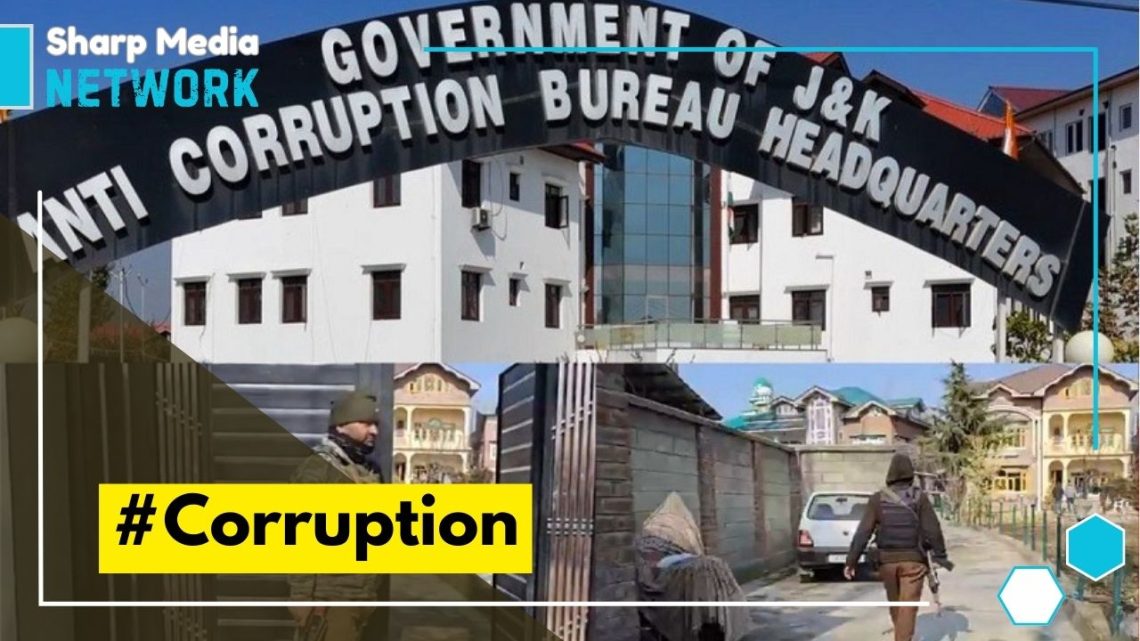
Corruption in IIOJK’s Government Offices Reaches Alarming Levels
April 14, 2025In a disturbing reflection of administrative failure, corruption in IIOJK’s government departments has reached unprecedented heights, threatening the region’s governance and public trust.
The Anti-Corruption Bureau (ACB) of Indian Illegally Occupied Jammu and Kashmir (IIOJK) has filed a charge sheet against 22 individuals for their involvement in fabricating revenue records in Budgam district. Among those named are two retired collectors, four serving government officials, and 16 beneficiaries who allegedly gained illegal possession of land through forged mutations.
Investigations revealed a large-scale scam involving fake land mutations—official records were deliberately manipulated to show false ownership. These fabricated entries were used to facilitate illegal land transfers and payments, costing the government both land and revenue.
The scam highlights systemic corruption within the Revenue Department, with officials allegedly colluding with private beneficiaries for personal gain.
Since the beginning of the year, over 900 government employees have come under investigation for corruption and negligence. According to the ACB, out of 900 cases:
- 351 cases have been closed
- 468 are still under investigation
- 81 cases remain pending
The accused belong to 36 different government departments, indicating that corruption is not limited to one area but is deeply rooted across the public sector.
Earlier this year, on January 5th, the IIOJK administration gave formal approval for legal proceedings against 18 government employees, including five patwaris (land record officials), over bribery and corruption allegations.
This decisive step was seen as part of a broader attempt to clean up the administration and restore public faith in government institutions.
From fake revenue records to bribery and negligence, the level of corruption within the region’s government machinery suggests an urgent need for structural reforms. It also raises questions about accountability and the effectiveness of existing oversight mechanisms.
Despite the ACB’s active investigations and government initiatives, tackling this deep-rooted corruption in IIOJK remains a daunting challenge. The growing number of cases highlights a culture of impunity that must be addressed to ensure transparency and justice.
The recent developments in IIOJK paint a grim picture of how corruption in government offices continues to hinder progress and erode public trust. The active role of the Anti-Corruption Bureau is a step in the right direction, but sustained efforts, legal action, and administrative reforms are crucial to bring about real change.

